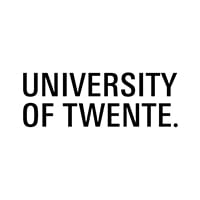PhD Position on Privacy-Preserving Data Visiting for Interoperable Healthcare Systems
Position Details (PhD Program)
Job description
This PhD project aims to develop a reference architecture for data visiting. This paradigm enables algorithms to securely access and process data within the environments where it resides, supporting federated learning for training machine learning models without moving sensitive or large-scale datasets across systems. The project will focus on designing a modular framework that addresses security, privacy, governance, and performance, while providing mechanisms to manage interoperability and semantic challenges when working with heterogeneous healthcare datasets. To ensure practical applicability, the architecture will be evaluated using healthcare data, a domain characterized by strict privacy regulations, diverse data standards, and complex interoperability requirements.
Case studies will be conducted within the ERDERA EU project, which explores secure and privacy-preserving approaches to sharing rare disease data across European research infrastructures. By combining architectural modeling with practical prototyping, this research seeks to establish a blueprint for trustworthy, semantically-aware data visiting infrastructures that can support advanced analytics and AI in healthcare.
Your profile
- You are an enthusiastic and highly motivated researcher.
- You have, or will shortly, acquire a master's degree in computer science or a related field.
- You have a creative mindset and excellent analytical and communication skills.
- The ability to conduct independent research and a willingness to develop writing and publication skills;
- You have a good team spirit and like to work in an interdisciplinary and internationally oriented environment.
- You are proficient in English.
Our offer
- As a PhD candidate at UT, you will be appointed to a full-time position for four years, with a qualifier in the first year, within a very stimulating and exciting scientific environment;
- The University offers a dynamic ecosystem with enthusiastic colleagues;
- Your salary and associated conditions are in accordance with the collective labour agreement for Dutch universities (CAO-NU);
- You will receive a gross monthly salary ranging from € 3.059,- (first year) to € 3.881,- (fourth year);
- There are excellent benefits including a holiday allowance of 8% of the gross annual salary, an end-of-year bonus of 8.3%, and a solid pension scheme;
- The flexibility to work (partially) from home;
- A minimum of 232 leave hours in case of full-time employment based on a formal workweek of 38 hours. A full-time employment in practice means 40 hours a week, therefore resulting in 96 extra leave hours on an annual basis.
- Free access to sports facilities on campus
- A family-friendly institution that offers parental leave (both paid and unpaid);
- You will have a training programme as part of the Twente Graduate School where you and your supervisors will determine a plan for a suitable education and supervision;
- We encourage a high degree of responsibility and independence, while collaborating with close colleagues, researchers and other staff.
Information and application
Are you interested in this position? Please send your application via the 'Apply now' button below before November 28, 2025, and include:
- A Curriculum Vitae, including a list of all courses attended and grades obtained, and, if applicable, a list of publications and references.
- A cover letter (maximum 2 pages), emphasising your motivation to apply for this position and why you consider yourself a good fit for it.
- An IELTS-test, Internet TOEFL test (TOEFL-iBT), or a Cambridge CAE-C (CPE). Applicants with a non-Dutch qualification and who have not had secondary and tertiary education in English can only be admitted with an IELTS-test showing a total band score of at least 6.5, internet. TOEFL test (TOEFL-iBT) showing a score of at least 90, or a Cambridge CAE-C (CPE).
For more information regarding this position, you are welcome to contact Claudenir Morais Fonseca via [emailprotected].
The first round of interview will be held on December 1, 2025.
Screening is part of the selection procedure.
About the department
The SCS department at UT's Faculty of Electrical Engineering, Mathematics, and Computer Science (EEMCS) advances semantic modelling, cybersecurity, and service design to enable meaningful computing within trusted digital environments. Their research focuses on ontology-driven conceptual modelling, FAIR data stewardship, and model-driven system/service engineering, dealing with data-driven services that understand the context and respond to changing situations.
SCS develops ontologies and service composition frameworks to achieve semantic interoperability and meaningful enterprise services. To safeguard these services, they create automated methodologies for system analysis, threat detection, and mitigation alongside privacy-enhancing technologies and data protection techniques.
Collaborating with industry, academia, and government, the SCS group applies its research across sectors like healthcare, agriculture, logistics, emergency management, smart cities, and manufacturing, addressing complex societal challenges through an interdisciplinary approach.
About the organisation
The faculty of Electrical Engineering, Mathematics and Computer Science (EEMCS) uses mathematics, electronics and computer technology to contribute to the development of Information and Communication Technology (ICT). With ICT present in almost every device and product we use nowadays, we embrace our role as contributors to a broad range of societal activities and as pioneers of tomorrow's digital society. As part of atech university that aims to shape society, individuals and connections, our faculty works together intensively with industrial partners and researchers in the Netherlands and abroad, and conducts extensive research for external commissioning parties and funders. Our research has a high profile both in the Netherlands and internationally. It has been accommodated in three multidisciplinary UT research institutes: Mesa+ Institute, TechMed Centre and Digital Society Institute.



 University of Twente
University of Twente